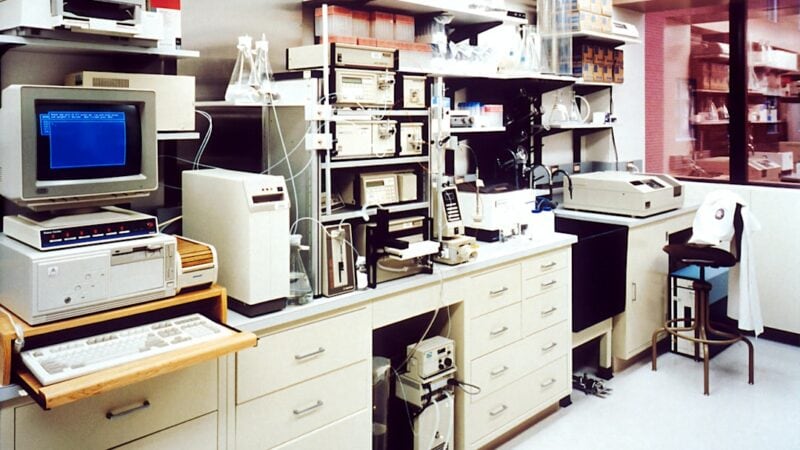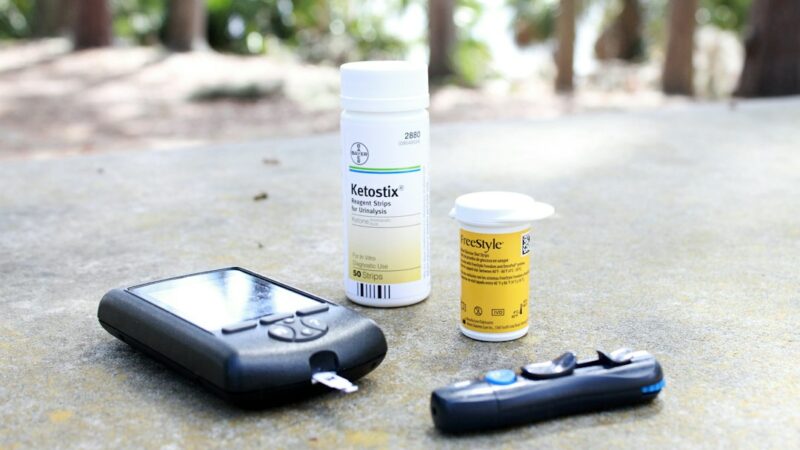Find a Celiac Disease Specialist Near You

Celiac disease is a chronic autoimmune disorder that affects the small intestine. It is triggered by the consumption of gluten, a protein found in wheat, barley, and rye. When individuals with celiac disease consume gluten, their immune system responds by damaging the lining of the small intestine, leading to various symptoms and long-term complications. It is estimated that 1 in 100 people worldwide have celiac disease, but many go undiagnosed or misdiagnosed.
Seeking specialized care for celiac disease is crucial for proper management and improved quality of life. Celiac disease specialists are healthcare professionals who have extensive knowledge and experience in diagnosing and treating this condition. They can provide accurate diagnoses, develop personalized treatment plans, and offer ongoing support and guidance to individuals with celiac disease.
Table of Contents
Key Takeaways
- Celiac disease symptoms include digestive issues, fatigue, and skin rashes, and diagnosis requires blood tests and intestinal biopsies.
- Seeking a specialist in celiac disease is important for accurate diagnosis and effective treatment.
- Look for a specialist with experience in celiac disease, who listens to your concerns and provides clear explanations.
- Resources for finding a celiac disease specialist include online directories and patient advocacy organizations.
- Questions to ask a celiac disease specialist include their experience with the disease, treatment options, and potential complications.
Understanding Celiac Disease: Symptoms and Diagnosis
Celiac disease is an autoimmune disorder that occurs in genetically predisposed individuals. When these individuals consume gluten, their immune system reacts by attacking the lining of the small intestine. This immune response leads to inflammation and damage to the villi, which are tiny finger-like projections that line the small intestine and help with nutrient absorption.
The symptoms of celiac disease can vary widely from person to person. Some common symptoms include abdominal pain, bloating, diarrhea, constipation, weight loss, fatigue, and skin rashes. However, it is important to note that some individuals with celiac disease may not experience any noticeable symptoms at all.
Diagnosing celiac disease involves a combination of medical history evaluation, physical examination, blood tests, and intestinal biopsy. Blood tests can detect specific antibodies that are present in individuals with celiac disease. If these tests indicate the presence of celiac disease, an intestinal biopsy may be performed to confirm the diagnosis.
Importance of Seeking a Celiac Disease Specialist
Working with a celiac disease specialist is essential for proper management of the condition. These specialists have in-depth knowledge and expertise in diagnosing and treating celiac disease, which allows them to provide the best possible care for their patients.
One of the key benefits of seeking specialized care for celiac disease is accurate diagnosis. Celiac disease can be challenging to diagnose due to its wide range of symptoms and the potential for misdiagnosis. Celiac disease specialists are trained to recognize the signs and symptoms of the condition and can conduct the necessary tests to confirm or rule out a diagnosis.
Additionally, celiac disease specialists can develop personalized treatment plans based on each individual’s unique needs and circumstances. They can provide guidance on following a strict gluten-free diet, which is the only known treatment for celiac disease. They can also monitor patients for any potential complications or nutrient deficiencies that may arise as a result of the condition.
What to Look for in a Celiac Disease Specialist
When choosing a celiac disease specialist, it is important to consider their qualifications, experience, and communication skills. Look for a specialist who is board-certified in gastroenterology or has completed additional training in celiac disease management. This ensures that they have the necessary knowledge and expertise to provide high-quality care.
Experience is another important factor to consider when selecting a celiac disease specialist. Find out how many patients with celiac disease they have treated and ask about their success rates in managing the condition. A specialist with extensive experience is more likely to have encountered a wide range of cases and can provide valuable insights and guidance.
Communication and bedside manner are also crucial when working with a celiac disease specialist. Look for someone who listens attentively, answers your questions thoroughly, and explains complex medical concepts in a way that is easy to understand. A good specialist should make you feel comfortable and supported throughout your treatment journey.
Finding a Celiac Disease Specialist Near You: Tips and Resources
Finding a celiac disease specialist near you can be challenging, especially if you live in a rural area or have limited access to healthcare resources. However, there are several online resources that can help you locate a specialist in your area.
One such resource is the Celiac Disease Foundation’s Healthcare Practitioner Directory, which allows you to search for healthcare providers who specialize in celiac disease. The directory provides information on each provider’s location, contact details, and areas of expertise.
You can also ask for recommendations from your primary care physician or other healthcare providers. They may be able to refer you to a specialist who has experience in managing celiac disease. Additionally, support groups for individuals with celiac disease can be a valuable source of information and recommendations.
When choosing a celiac disease specialist, consider factors such as their location, availability, and whether they accept your insurance. It is also important to find a specialist who aligns with your personal preferences and values. Trust your instincts and choose a specialist who makes you feel comfortable and confident in their abilities.
Questions to Ask a Celiac Disease Specialist During Your First Appointment

During your initial consultation with a celiac disease specialist, it is important to ask questions to ensure that you have a clear understanding of your condition and treatment options. Here are some important questions to consider:
1. What tests do I need to confirm the diagnosis of celiac disease?
2. What are the potential complications or long-term effects of celiac disease?
3. How strictly do I need to follow a gluten-free diet?
4. Are there any medications or supplements that can help manage my symptoms?
5. How often should I have follow-up appointments?
6. Are there any support groups or resources that you recommend?
Understanding the answers to these questions will help you make informed decisions about your treatment plan and management options.
Treatment Options for Celiac Disease: Working with Your Specialist
The primary treatment for celiac disease is a strict gluten-free diet. This means avoiding all foods and products that contain gluten, including wheat, barley, rye, and their derivatives. Following a gluten-free diet can be challenging, as gluten can be found in many unexpected sources, such as sauces, condiments, and processed foods.
Working with a celiac disease specialist is crucial for developing a personalized treatment plan that meets your specific needs and preferences. They can provide guidance on reading food labels, identifying hidden sources of gluten, and finding suitable alternatives. They can also recommend registered dietitians who specialize in celiac disease management to help you develop a balanced and nutritious gluten-free diet plan.
In some cases, individuals with celiac disease may require additional medical interventions to manage their symptoms or complications. For example, if nutrient deficiencies are present, supplements may be recommended to restore optimal levels. Medications may also be prescribed to manage specific symptoms or complications.
The Role of a Registered Dietitian in Managing Celiac Disease
A registered dietitian (RD) plays a crucial role in managing celiac disease. They have specialized knowledge and training in nutrition and can help individuals with celiac disease develop a balanced and nutritious gluten-free diet plan.
A registered dietitian can assess your nutritional needs, identify potential nutrient deficiencies, and recommend appropriate dietary modifications or supplements. They can also provide practical tips for grocery shopping, meal planning, and dining out while following a gluten-free diet.
Collaborating with both a registered dietitian and a celiac disease specialist can provide comprehensive care and support for managing celiac disease. The specialist can focus on the medical aspects of the condition, while the dietitian can address the nutritional aspects, ensuring that you receive holistic care.
Support Groups for Celiac Disease Patients: Connecting with Others
Joining a support group for individuals with celiac disease can provide valuable emotional support and practical advice. These groups allow you to connect with others who are going through similar experiences and can offer insights and tips for managing the condition.
There are both online and in-person support group resources available. Online support groups, such as forums and social media groups, allow you to connect with individuals from all over the world. In-person support groups, on the other hand, provide an opportunity to meet others in your local community and participate in group activities or events.
Support groups can be particularly helpful for newly diagnosed individuals who may feel overwhelmed or isolated. They can provide a safe space to ask questions, share experiences, and learn from others who have been managing celiac disease for longer periods of time.
Traveling with Celiac Disease: Tips for Finding Safe Restaurants and Accommodations
Traveling with celiac disease can be challenging, as it requires careful planning and preparation to ensure that you have access to safe and gluten-free meals. Here are some tips for finding safe restaurants and accommodations while traveling:
1. Research restaurants in advance: Use online resources, such as gluten-free restaurant directories or review websites, to find restaurants that offer gluten-free options. Read reviews from other individuals with celiac disease to ensure that the restaurant takes proper precautions to avoid cross-contamination.
2. Communicate your dietary needs: When making reservations or ordering at a restaurant, clearly communicate your dietary restrictions and ask about their gluten-free options. It is important to emphasize the importance of avoiding cross-contamination.
3. Pack gluten-free snacks: Bring a supply of gluten-free snacks with you to ensure that you have safe options available in case you cannot find suitable meals while traveling.
4. Choose accommodations with kitchen facilities: Consider staying in accommodations that have kitchen facilities, such as vacation rentals or hotels with kitchenettes. This allows you to prepare your own meals using gluten-free ingredients.
5. Carry a translation card: If you are traveling to a country where English is not widely spoken, consider carrying a translation card that explains your dietary restrictions and asks for gluten-free options. This can help you communicate your needs to restaurant staff or locals.
Planning ahead and being prepared can help ensure that you have safe and enjoyable travel experiences while managing celiac disease.
Advocating for Yourself as a Celiac Disease Patient: Working with Your Specialist and Insurance Provider
Advocating for yourself as a celiac disease patient is crucial for ensuring that you receive the best possible care and support. Here are some strategies for self-advocacy:
1. Educate yourself: Learn as much as you can about celiac disease, its symptoms, treatment options, and potential complications. This knowledge will empower you to make informed decisions about your care and treatment.
2. Communicate openly with your specialist: Be proactive in discussing your concerns, asking questions, and expressing your needs and preferences. Open communication with your specialist will help ensure that you receive personalized care that meets your specific needs.
3. Keep a record of your symptoms and experiences: Maintain a journal or diary to track your symptoms, dietary changes, and any other relevant information. This record can help you identify patterns or triggers and provide valuable information to your specialist.
4. Understand your insurance coverage: Familiarize yourself with your insurance policy and understand what services are covered for celiac disease management. If you encounter any issues or denials of coverage, be prepared to advocate for yourself by providing supporting documentation or seeking assistance from patient advocacy organizations.
5. Get involved in celiac disease advocacy: Join local or national celiac disease advocacy organizations to support efforts to raise awareness, promote research, and improve access to care for individuals with celiac disease. These organizations can provide resources, support, and opportunities to get involved in advocacy efforts.
Celiac disease is a chronic autoimmune disorder that requires specialized care for proper management. Seeking a celiac disease specialist is crucial for accurate diagnosis, personalized treatment plans, and ongoing support. These specialists have the knowledge and expertise to provide comprehensive care and guidance for individuals with celiac disease.
Finding a celiac disease specialist can be challenging, but there are online resources, recommendations from healthcare providers, and support groups that can help. When choosing a specialist, consider their qualifications, experience, and communication skills.
Collaborating with a registered dietitian is also important for managing celiac disease, as they can help develop a gluten-free diet plan that meets your nutritional needs. Joining a support group can provide emotional support and practical advice from others who are managing celiac disease.
Traveling with celiac disease requires careful planning and preparation to ensure access to safe meals. Advocating for yourself as a celiac disease patient is crucial for receiving the best possible care and support. By working with your specialist, insurance provider, and getting involved in advocacy efforts, you can help raise awareness and improve access to care for individuals with celiac disease.
Looking for a Celiac Disease specialist near you? While you’re on your journey to better health, why not explore the benefits of Suja Ginger Shot? This ultimate immunity booster is perfect for maintaining a healthy lifestyle. Learn more about its incredible health benefits, side effects, and nutritional facts in this informative article: Suja Ginger Shot: The Ultimate Immunity Booster for a Healthy Lifestyle.
FAQs
What is Celiac Disease?
Celiac Disease is an autoimmune disorder that affects the small intestine. It is triggered by the consumption of gluten, a protein found in wheat, barley, and rye.
What are the symptoms of Celiac Disease?
The symptoms of Celiac Disease can vary from person to person and may include abdominal pain, bloating, diarrhea, constipation, fatigue, and weight loss.
How is Celiac Disease diagnosed?
Celiac Disease is diagnosed through blood tests and a biopsy of the small intestine.
What is a Celiac Disease specialist?
A Celiac Disease specialist is a healthcare provider who has specialized training and experience in the diagnosis and treatment of Celiac Disease.
Why is it important to see a Celiac Disease specialist?
It is important to see a Celiac Disease specialist because they have the expertise to properly diagnose and treat the condition. They can also provide guidance on managing the disease and avoiding gluten.
How can I find a Celiac Disease specialist near me?
You can find a Celiac Disease specialist near you by asking your primary care physician for a referral, searching online directories, or contacting local hospitals or medical centers.






